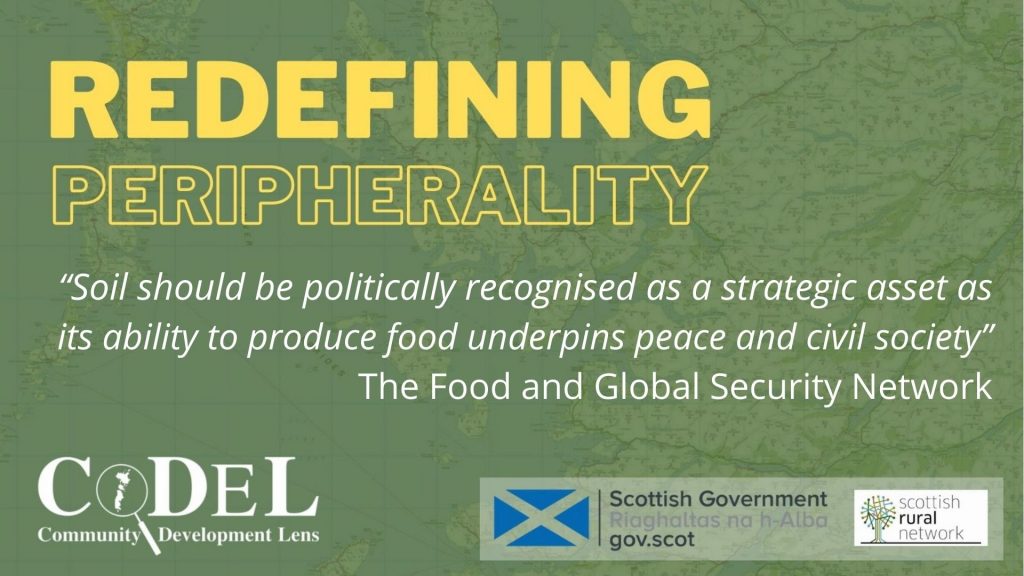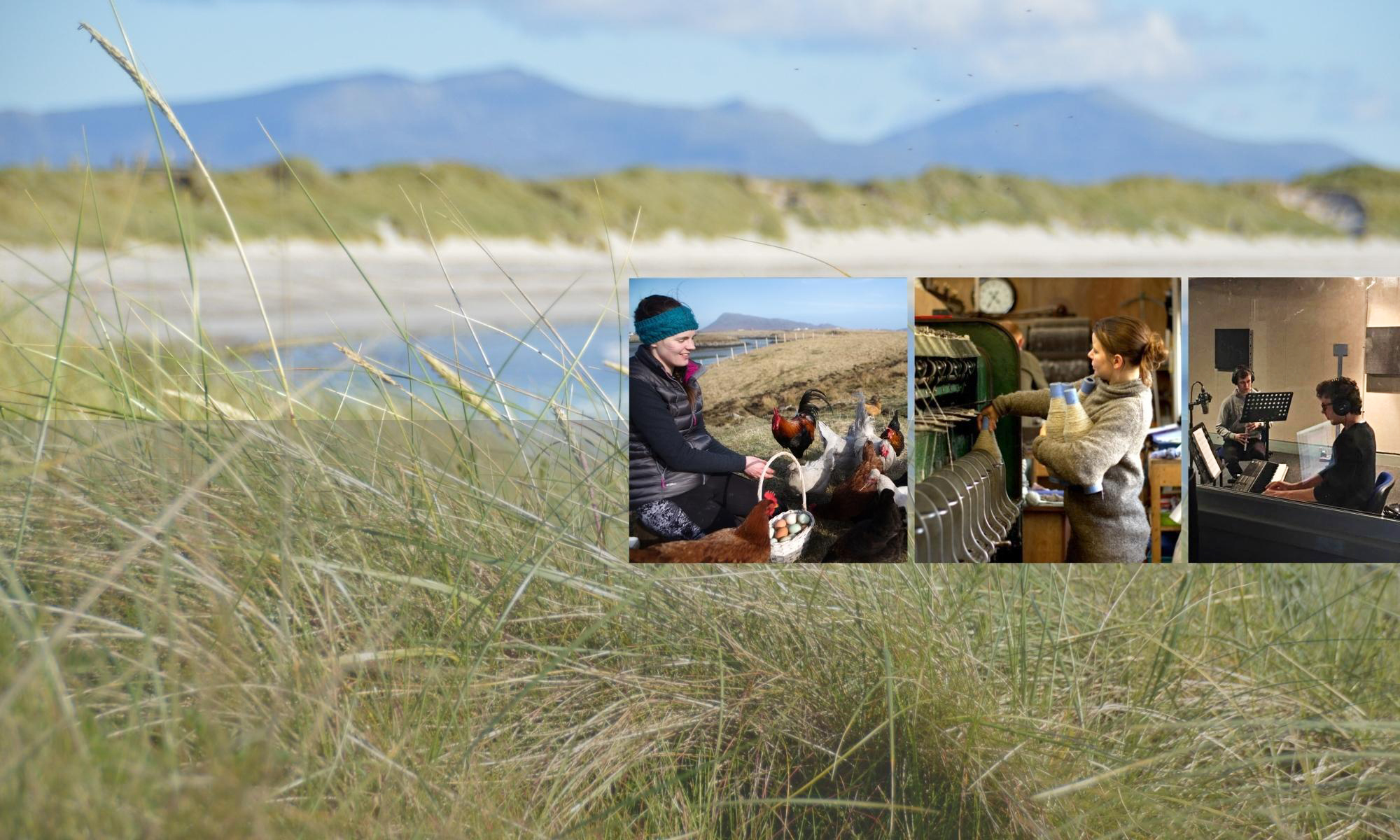
Hogmanay passed, and in the dark days of early January, life starts to move into gear for the year ahead. The prospect of going headlong into a three-day online conference on January 5th was both inspiring whilst at the same time being full-on, in at the deep end…
The Oxford REAL Farming Conference consisting of 500 speakers over 135 sessions in just three days felt it could be heavy going. In honesty, living and working on a croft in the Outer Hebrides of Scotland, knowing that as the crow flies, I am geographically closer to Denmark than Oxford, and culturally perhaps a good deal further apart, I was not full of hope.
How wrong one can be! It was such an insightful conference, now in it’s 13th year, thankfully for me online, but so inspiring that I might in future consider travelling the distance to attend physically.
Sessions ranged from international trade and the fight for food sovereignty to dung beetles as the farmers’ friends, from how small agroecological farms facilitate landscape-scale biodiversity to food and farming as part of global climate action, from the impact of food and farming enterprises to land justice, from designing regenerative food systems to capitalism, and much more.
One of the sessions I attended was on How Meadows And Healthy Soil Can Fight Climate Change As Well As Reconnect Us To Cultural Landscapes delivered by Michael Wachter, from the historic garden at Great Dixter in Sussex, but originally from Bavaria, and Gillian Burke, biologist, broadcaster and writer.
The descriptor said “It took around 6000 years to create the species-rich grassland for which the UK is globally famous. Yet in less than a century we have lost 97% of it. This talk will look at meadows as part of a natural as well as a cultural working landscape, highlight the potential carbon capture possibilities and why this can outcompete even woodlands. We will look at why meadows are a vital tool to combat habitat loss and its associated invertebrates but also provide a wider range of minerals and amino acids for livestock than intensive pasture. Furthermore this talk will highlight how the loss of species-rich grassland correlated with the loss of connection to the wider countryside but also how we can get these habitats back.”
Some of the key take-away points for me were: “Carbon is not the enemy of life but the creator” and that “Carbon is the outbreath of nature over the year”. April and May is the “inbreath of carbon, outbreath is in Autumn, with leaf-fall and die-back of vegetation.” Soil can store twice as much carbon as vegetation. Plants share 30 -40% of their carbohydrates produced through photosynthesis. Carbon is the main driver for growth, not potassium.
With increased livestock stocking density, this has resulted in too many sheep (selective grazers), resulting in reduced grasses and the soil becoming crushed. When soil is compacted, air, water and organic matter is driven out, then the minerals diminish. Compaction leads to run-off. The UK has lost approximately 17 inches of soil in the last 18 years because of intensive practices.
But rewilding forgets not just people (“We mustn’t forget humans as part of the landscape, not only as observers with binoculars, but as keystone species facilitating life”), it also forgets large herbivores which create open space habitats. Grass not being grazed begins to oxidise and fades, like grass on a roof, because of lack of grazing. Cattle open up habitats enabling them to quite literally flower.
The Food and Global Security Network reported last year, that “soil should be politically recognised as a strategic asset, as its ability to produce food underpins peace and civil society”. Apparently, more money is spent on studying the stars than on the soil which keeps us alive.
If we think about the dust storms in the US, the changes driven by a global food system which even on my own patch has seen a move away from a mixed model of farming where both sheep and importantly cattle roamed the higher ground (land unsuitable for arable), moved in their hefted roaming patterns, in larger areas, driven by humans, thereby creating lush herbal ley swathes, rich and productive.
From a human biology perspective, “unfortunately, plant nutrients often suffer from low bioavailability – which means that they are hard for us to extract, absorb and utilise” according to research by Georgie Ede, MD in the US and a raft of international research illustrated trials which showed reduced absorption rates for Vitamin A, iron, Zinc and DHA/EPA, the forms of essential omega 3 required for brain and immune system function from plant based diets alone.
Why does all this matter? Farming is under huge pressure to ‘reform’ as part of the move towards Net Zero combatting climate change. Looking back, many farmers are beginning to say, that the way their fathers farmed, they now realise, was flawed. One speaker at the conference said when he asked his father, a dairy farmer, why he sprayed either pesticide or insecticide under the hedges, his father said, that’s what he and his peers had been advised to do. Thankfully the inherited knowledge (more from the grandfathers) of working the land in a sustainable way is just about still in living memory. Authors such as James Rebanks, learnt from their grandfather how to farm in harmony with nature rather than seeking to eradicate anything.
Some lovely thoughts of my own, some of which were given at ORFC for us to leave with, I now pass on …
- Recognise your context and plan appropriately
- Talk to others, peer groups and ask the old guys how they used to do it.
- Slow and steady continual improvement- land doesn’t change overnight.
- Start now!
… and some practical examples in holistic planning grazing, managing grazing animals mimicking natural patterns to build soil and sequester carbon; multi species rotations, keeping the soil covered with minimum till. Soil, it’s under our feet – this is the Soil Association’s strap line, perfect.
Theona Morrison, CoDeL Director and Acting Chair, Scottish Rural Action

